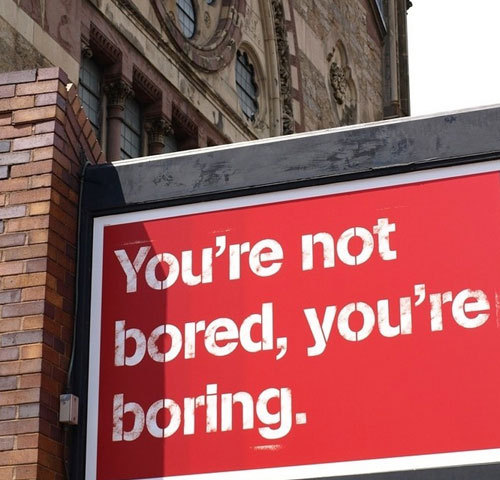TGIF! Is Friday really that great? Is Monday really that awful?
..on average, people's mood remained about the same throughout the week." Via PsyBlog: They found that, on average, people's mood remained about the same throughout the week. Mondays weren't as depressing as people thought and Fridays and Saturdays weren't as exciting as people predicted. The results demonstrate the memory bias: when thinking back we tend to recall the worst incidence of an event we've experienced before. Mondays are stereotypically depressing, so we tend to recall the worst Mondays. Fridays and…
1 min read
Can a boring job give you a heart attack?
notony on the job is associated with greater risk of myocardial infarction: The project was designed to test the assumption that certain psychosocial characteristics of occupational groups are associated with elevated myocardial infarction risk. All cases of myocardial infarction below the age of 65 in men living in the region of greater Stockholm during the years 1974-1976 were identified (deaths as well as survivals) in the official registries of hospitalizations and deaths. For each case two controls without infarction (in…
1 min read
What are the happiest jobs? What are the unhappiest?
a Forbes: 1. Clergy: The least worldly are reported to be the happiest of all 2. Firefighters: Eighty percent of firefighters are “very satisfied” with their jobs, which involve helping people. 3. Physical therapists: Social interaction and helping people apparently make this job one of the happiest. 4. Authors: For most authors, the pay is ridiculously low or non-existent, but the autonomy of writing down the contents of your own mind apparently leads to happiness. 5. Special education teachers: If…
2 minutes
What drink might reduce depression in women?
ffee. Via Inforum: Among a large population of women tracked for as long as 18 years each, the women who routinely consumed the highest levels of caffeine were 20 percent less likely than those who drank little to none to become depressed when they were nearing or in their 60s. Coffee, which ounce-for-ounce delivers the strongest dose of caffeine, was most women's pick-me-up of choice. And generally, the more caffeine a woman drank, the more likely she was to be…
1 min read
Why are lawyers so unhappy? (And how can we use this to be happier?)
rtin Seligman, psychology professor at UPenn and author of Authentic Happiness, clues us in as to just how unhappy lawyers are: Researchers at John Hopkins University found statistically significant elevations of major depressive disorder in only 3 of 104 occupations surveyed. When adjusted for sociodemographics, lawyers topped the list, suffering from depression at a rate of 3.6 times higher than employed persons generally. Lawyers also suffer from alcoholism and illegal drug use at rates far higher than non-lawyers. The divorce…
2 minutes
Does Facebook make us miserable?
Facebook we all show the best and not the worst, leading to portraits of unattainable lives that may very well make us feel bad by comparison: Via Slate: Led by Alex Jordan, who at the time was a Ph.D. student in Stanford's psychology department, the researchers found that their subjects consistently underestimated how dejected others were–and likely wound up feeling more dejected as a result. Jordan got the idea for the inquiry after observing his friends' reactions to Facebook:…
2 minutes
Who is happier: lottery winners or paralyzed accident victims?
ttery winners... but not by nearly as much as you might guess. Some time after winning their money, lottery winners weren't all that much happier than people who hadn't won -- and accident victims weren't anywhere as unhappy as the researchers had assumed. Shouldn't lottery winners be ecstatic and paralyzed accident victims be miserable? No. What the authors of the study found was that: 1) Much of happiness exists outside of objective life circumstances. Attitude and perspective mean a lot…
2 minutes
Is being selfless the smartest way to be selfish?
is study shows doing volunteer work increases happiness -- not just correlation; they demonstrated causation as well. So if you're being self-centered and thinking only of how you can increase your own happiness, well, you may want to go help others for nothing in return: Here, we directly address the issue of causality and take advantage of a natural experiment: the collapse of East Germany. Shortly after the fall of the Berlin Wall but before the German reunion, the first…
2 minutes








